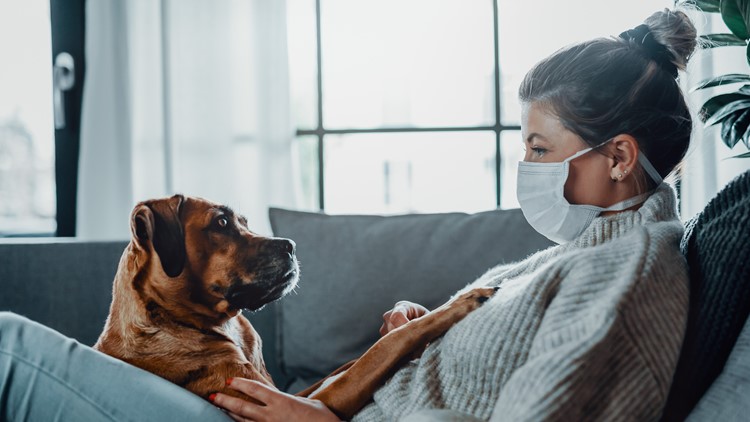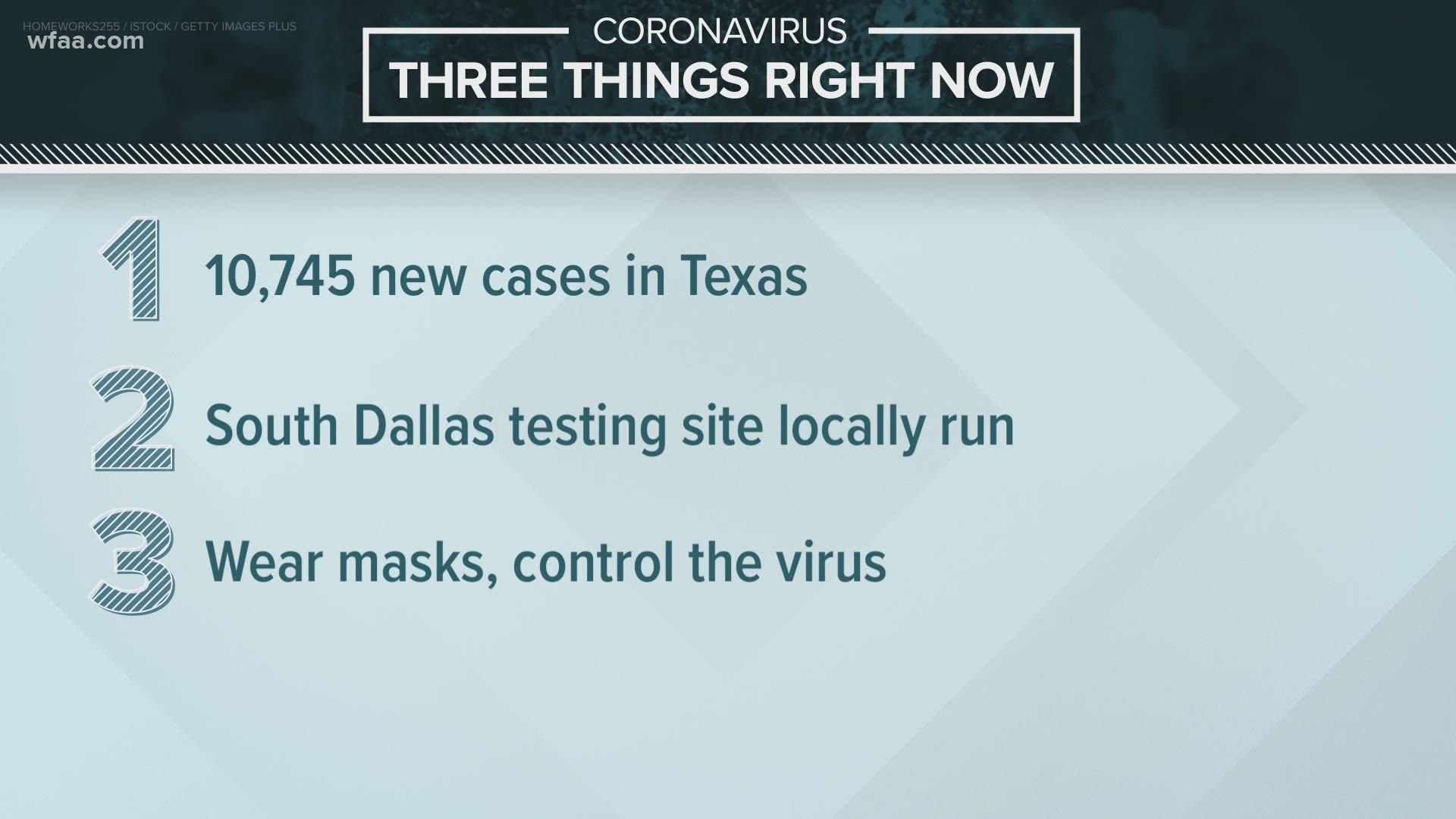As COVID-19 continues to spread in North Texas, a medical coalition is answering commonly asked questions.
The North Texas Medical Society Coalition released the information, saying "misconceptions and confusion surrounding the virus have also increased."
"Combining this information with the proactive measures of masking, hand washing, maintaining physical distance, and staying home when possible empowers individuals in the community to protect themselves and others," the coalition said.
When should a person be tested?
If a person has symptoms of potential COVID-19, they should consider getting tested to confirm COVID-19, the coalition said.
Talk with a doctor about the necessity and best method for getting a test.
- Symptoms include: fever, cough, shortness of breath, chills, muscle pain, new loss of taste or smell, vomiting or diarrhea, and/or sore throat;
- anyone 65 years old or older;
- anyone with chronic health issues (diabetes, asthma, heart issues, etc.);
- first responders or essential workers; and
- persons without symptoms who have been actively engaged in large group settings, such as public gatherings or congregations of people, within the past 15 days.
A person exposed to someone who is COVID-19 positive but not showing any symptoms probably doesn't need a test, the society said, unless required by an employer, school or third party.
"In all cases, the person who was exposed should quarantine themselves for 14 days to ensure they do not develop symptoms," the coalition said. "Even if the person obtains a test and it comes back as negative, it is important to complete the 14 days of quarantine since tests may give false negatives if the virus has not fully developed in infected individuals."
Isolation and quarantine: What's the difference?
Isolation is when a person is COVID-19 positive but their symptoms are not severe enough to require hospital admission. That person should remain isolated at home for at least 10 days after the first on-set of symptoms.
Quarantine is when a person has been exposed to a person who has COVID-19 but do not know if they have the virus.
When can a person with COVID-19 stop isolating themselves?
The person should isolate until three days after a fever has subsided, respiratory symptoms have improved and it has been 10 days since the first onset of symptoms, the coalition said. If a person does not have symptoms but tested positive, they should still isolate for 10 days, the coalition said.
What does being in 'close contact' mean?
Close contact means:
- Being within 6 feet of someone who has COVID-19 for 15 minutes or longer;
- Taking care of someone who has COVID-19;
- Having physical contact with someone who has the virus;
- Sharing eating or drinking utensils with someone who has COVID-19; and
- Being sneezed on or coughed on by someone who has the virus.
Where can a person get tested?
People can contact their doctors for recommendations or TXCovidTest.org to see what local options are available from the state.
The coalition represents more than 11,500 physicians in the counties of Collin, Fannin, Dallas, Denton, Grayson and Tarrant.




